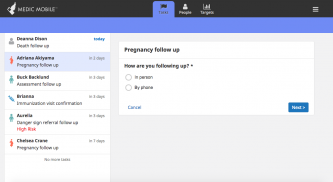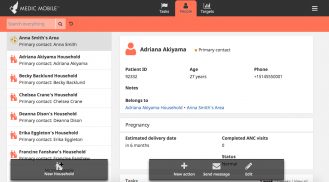




YendaNafe Supervisor

Description of YendaNafe Supervisor
Malawians face a daunting HIV epidemic and high rates of infant and maternal mortality, while quality care is scarcely available or unaffordable for most people. Those who can pay for treatment are often unable to reach clinics, especially over mountainous terrain and barely passable roads in remote areas.
In the rural, southern district of Neno, where Partners In Health has worked since 2007, “remote” definitely applies. Patients sometimes ford rivers to reach a health facility. In the rainy season, from November to April, staff often have to use a dune buggy to reach clinics.
The geographic challenges have fostered a model of integrated care, in which clinics offer treatment for many conditions—not only HIV, but also hypertension, diabetes, malnutrition and mental illness, for example—so patients can make the most out of lengthy trips or rare visits.
The model is a hallmark of how PIH, known locally as Abwenzi Pa Za Umoyo, collaborates with Malawi’s Ministry of Health to provide comprehensive care for about 160,000 people in Neno.
That care starts with a community-based screening program. Just as clinics integrate treatment, the screening program enables people to be tested for numerous conditions at single outreach events. We also visit people in their homes, where village health workers check on the needs of entire households and families, who often are health workers’ friends and neighbors.
And when people need to visit a health center, they now have far better options than they did just a decade ago.
When PIH began working in Neno, there was no district hospital, and its 10 health centers had fallen into disrepair. In the years since, PIH has built Neno District Hospital and a community hospital, revitalized the 10 health centers and built two more. Key programs focus on reducing maternal deaths and providing preventative care and treatment for HIV, tuberculosis, malaria, malnutrition and more. In 2011, PIH opened a unit dedicated to treating severely malnourished children—the first of its kind in the district.
PIH also provides financial support to its most vulnerable patients, as poverty is often the root cause of disease and poor health. Staff members organize training and employment sessions in trades including carpentry, cooking, farming, tailoring and more, to help patients and their families lift themselves out of poverty. The program also provides safe housing for patients in need, and helps children attend school by paying for fees, uniforms, and supplies.
Moving forward, PIH’s vision is for Neno to be a model for all of Malawi. We run conferences and trainings with health authorities from other districts, to expand our approach across the country and enable more people to access high-quality care.

























